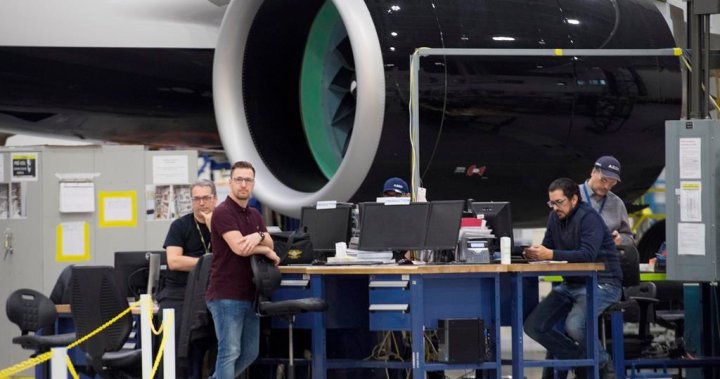Unionized employees at the Airbus assembly facility in Mirabel, Que., have rejected the company’s latest contract offer in a vote on Sunday. The rejection comes after talks between Airbus and representatives of the Airbus A220 workers, which began after the workers initially rejected the first offer three weeks prior. Airbus has described the dialogue at the bargaining table as open and constructive and had submitted a new and improved offer to the members of the International Association of Machinists and Aerospace Workers on March 29. However, Airbus states that there is still a gap between the union’s demands and the current financial capacity of the A220, which has not yet reached breakeven. Despite this, Airbus remains committed to reconciling the interests of its employees with the economic imperatives of the A220, and its negotiating team plans to return to the bargaining table as early as Monday.
The union had initially rejected the company’s contract offer in March, with members voting 99.6% against the contract and 98.9% in favor of strike action. According to a statement from the union after the first vote, they represent 1,300 of the 3,000 workers at the Mirabel facility. The main concern among members was that the proposed wage increases were below the rate of inflation. This rejection of the contract offer and the willingness to take strike action underscores the dissatisfaction of the workers with the terms presented by Airbus. As negotiations continue between the company and the union, it remains to be seen if a mutually acceptable agreement can be reached that addresses the concerns of the employees.
The rejection of the contract offer by the unionized employees at the Airbus assembly facility highlights the challenges faced by workers in the aerospace industry. As one of the major players in the aviation sector, Airbus plays a significant role in the global economy. The bargaining process between the company and the union reflects the delicate balance that must be maintained between the interests of employees and the financial viability of the company. For Airbus, reaching a compromise that satisfies both parties is essential to ensuring the continued operation and success of the A220 program. Finding a solution that addresses the concerns of the workers while also aligning with the economic realities of the industry will be crucial in resolving the current impasse.
The rejection of the contract offer also points to broader issues within the aerospace industry, such as wage stagnation and rising inflation. As workers voice their concerns about wages not keeping pace with the cost of living, companies like Airbus are under pressure to address these issues while also managing their financial obligations. The union’s decision to reject the contract offer and consider strike action reflects a growing trend of labor activism in industries where workers feel their livelihoods are being jeopardized. As such, the outcome of the negotiations between Airbus and the union could have implications beyond the specific context of the A220 assembly facility in Mirabel, Que., and serve as a barometer for labor relations in the aerospace sector as a whole.
The commitment of Airbus to continue negotiations and work towards a resolution demonstrates the company’s willingness to engage with its employees and address their concerns. By returning to the bargaining table, Airbus aims to bridge the gap between the demands of the union and the financial constraints of the A220 program. The company’s emphasis on reconciling the interests of its employees with the economic imperatives of the business underscores the importance of reaching a mutually beneficial agreement. As both parties seek a way forward, the outcome of the negotiations will be closely watched by industry stakeholders, labor groups, and the wider community to see how the interests of workers and companies can be balanced in a challenging economic environment.















